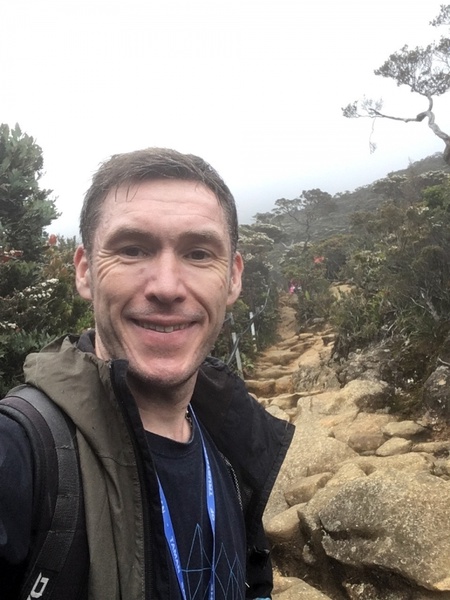Diabetes Week runs in 2021 from June 14 to June 20. Ahead of this, we talk to university geophysicist David Cornwell about how the pandemic and change in the working environment has affected him and the management of his condition.
A diagnosis of diabetes came ‘out of the blue’ for David at the age of 15 – a time when he was considering his future career options.
Daily life changed over-night and he had to adapt quickly to a new regime of regularly pricking his fingers to check sugar levels, managing his diet carefully and injecting insulin.
It was only when a careers officer talked to him about the impact of diabetes on his future career choices that he realised the full implications of his diagnosis – but this also inspired a philosophy that it wouldn’t hold him back.
He put this to the test as a new geophysics graduate, volunteering with the US Geological Survey in Menlo Park, California and later travelling the world. This included helping to deploy seismometers in the continental rift zone in Ethiopia and the data he collected there led on to his PhD.
By the time David joined the university of Aberdeen in 2013 he was well experienced at managing his condition alongside living life to the full. He was also enjoying the benefits ofan insulin pump and continuous glucose monitoring to keep his diabetes under control.
Nonetheless, he estimated that even before anyone had heard the words ‘Covid-19’, up to 30% of his week could be taken up with dealing with his diabetes in some way.
Then in March last year, the world turned upside down for everyone – with those with diabetes particularly affected as the condition put them at increased risk of severe Covid.
“Having diabetes means a constant balancing act between living your life and being controlled by diabetes,” David says.
“Since my teenage diagnosis, I’d adapted fairly well although it has always meant additional efforts to perform ‘normally’ at work. These range from avoiding meetings that run into times when eating is essential to keep blood sugar levels under control to coping with unexpected sugar levels interfering with hard-fought writing time.
"There are dozens of factors that affect how blood sugars will go. Exercise, the weather, stress levels, tiredness, general health, all play a part. I can have between one and 10 instances of high blood sugar a week. It feels like a hangover; I can't concentrate, I'm achy and have bad short-term memory for usually two or three hours. When my sugars go too low, I can't really do very much, I'm wobbly and anxious."
But these difficulties were brought into even sharper focus when Covid-19 hit.
“The past 18 months or so have been difficult as an academic but particularly as an academic with diabetes.
“Like many, my workload has been higher than ever but I am also constantly trying to play catch-up from those periods when my blood sugars are non-ideal.
“This leads to a vicious cycle because the process of trying to get on top of things causes me extra stress which in turn raises my sugar levels and so the time I desperately need can be lost.”
In a bid to offset workload pressures, David – a keen runner – set himself a challenge. In 2020 he vowed to run every street in Aberdeen to raise money for a charity. A feat he was able to complete just before New Year – and with an extra-long final run – which meant he had covered 2,634 streets and a total distance of over 1300 miles.
It is this personal approach to managing workload and stress which David advocates as we look to learn lessons from the enforced and rapid change in the way we work.
“I appreciate that the University has tried to support staff through the workload toolkit but it hasn’t been entirely successful for me,” he adds.
“Having to switch meetings to conform to non-lunchtimes has created extra work and limited my options. Since I also have caring responsibilities, dealing with caring, diabetes and workload increase has been very challenging.
“I think the positive legacy of this period will be a greater appreciation of staff and students and their individual needs, and that giving people choices of how and where to work is a good thing, particularly if you have to cope with a long-term condition such as diabetes.”


